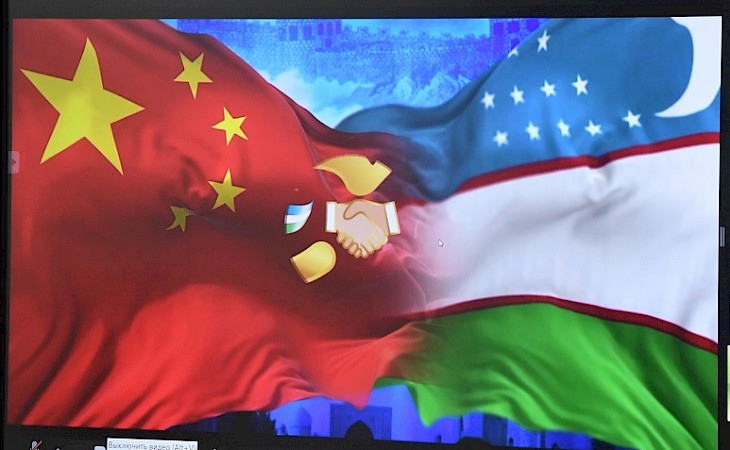The aspects of Beijing's growing economic influence in Uzbekistan were thoroughly examined in the international journal The Diplomat in an article by Bekzod Zakirov titled "Expanding China's Presence in Uzbekistan."
The article highlights that in recent years, China has significantly strengthened its economic presence in Uzbekistan, generating both support and concern among the local population.
On social media, there has been a rise in Sinophobia, fueled by unverified reports about land sales to Chinese investors and the increasing number of Chinese businesses and cultural influences in Uzbekistan.
These discussions reflect a social divide: while some fear a loss of economic sovereignty and cultural identity, others welcome investments as a driver of modernization and economic growth.
Expanding China's Presence in Uzbekistan
The author notes that after gaining independence in 1991, Uzbekistan mainly exported natural resources and agricultural products, such as cotton, to China.
With the launch of the Belt and Road Initiative (BRI) by Chinese leader Xi Jinping, the focus shifted to infrastructure construction and modernization through state loans aimed at boosting regional trade.
Since President Shavkat Mirziyoyev took office in 2016, Uzbekistan has pursued economic liberalization and foreign investment. These reforms have significantly increased the number of Chinese enterprises in the country.
By 2025, there are 3,467 registered Chinese companies in Uzbekistan, accounting for approximately 22% of all foreign enterprises—exceeding the number of Russian companies.
Key Sectors of Chinese Investment
Chinese investments span various sectors of Uzbekistan’s economy:
▪️ Construction & Infrastructure – Chinese companies are involved in building roads, bridges, and other facilities, improving the country's transportation network.
▪️ Consumer Goods Manufacturing – Joint ventures are producing electronics, household appliances, and other consumer products.
▪️ Agriculture – Chinese investors are introducing modern technologies into the agricultural sector, enhancing productivity and export potential.
▪️ Green Energy – Renewable energy projects are being developed, including solar and wind power plants.
One notable example is a joint project with the Chinese company BYD to manufacture electric vehicles in Jizzakh. This initiative has created 1,200 jobs, with production plans increasing from 50,000 to 500,000 electric vehicles per year.
Public Reactions & Concerns
Despite economic benefits, China's growing presence has sparked concerns among some segments of the population. Key concerns include:
▪️ Economic Sovereignty – Fears of excessive dependence on Chinese investments and potential influence on national decision-making.
▪️ Cultural Identity – Worries about changes in the country’s cultural landscape under Chinese influence.
▪️ Local Business Competition – Concerns about Chinese companies outcompeting local entrepreneurs.
Uzbekistan's government aims to balance foreign investment with national interests, emphasizing the importance of Chinese investments while addressing public concerns.
Conclusion
The author concludes that the expansion of Chinese economic influence in Uzbekistan reflects the country’s efforts to diversify external economic relations and attract investments for sustainable development.
However, he argues that authorities must consider public sentiment and ensure investment transparency to maintain a balance between economic growth, national sovereignty, and cultural identity.
CentralasianLIGHT.org
April 3, 2025

